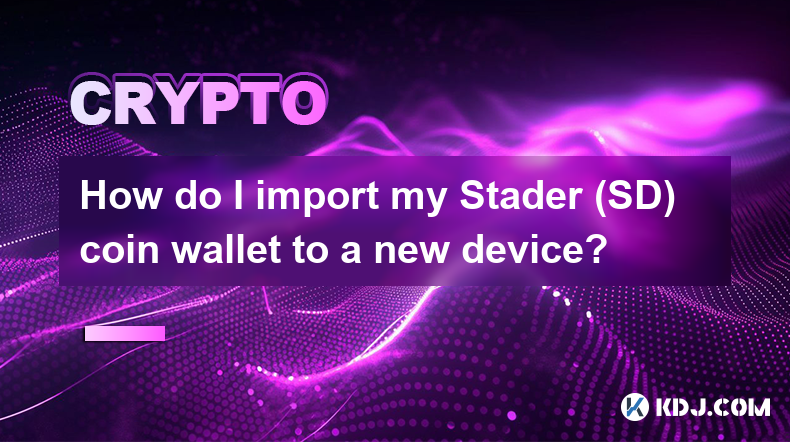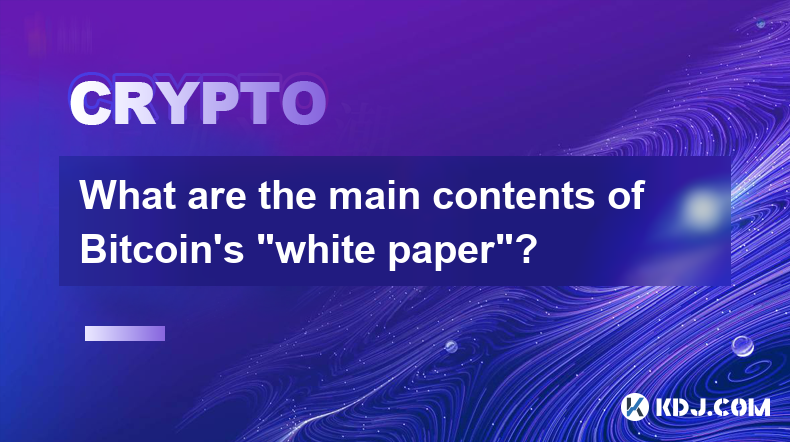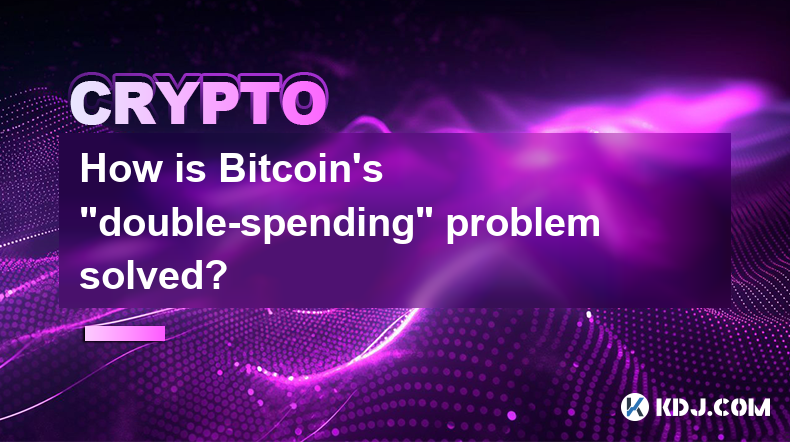-
 Bitcoin
Bitcoin $96,151.0114
-0.45% -
 Ethereum
Ethereum $2,819.9167
1.97% -
 XRP
XRP $2.5740
-0.11% -
 Tether USDt
Tether USDt $1.0001
0.00% -
 BNB
BNB $657.3794
-1.68% -
 Solana
Solana $167.6593
-2.69% -
 USDC
USDC $1.0000
0.00% -
 Dogecoin
Dogecoin $0.2426
-1.74% -
 Cardano
Cardano $0.7688
-0.79% -
 TRON
TRON $0.2458
3.57% -
 Chainlink
Chainlink $17.6151
-0.92% -
 Sui
Sui $3.3663
-1.58% -
 Avalanche
Avalanche $24.7950
-3.98% -
 Stellar
Stellar $0.3330
-0.56% -
 Litecoin
Litecoin $129.9385
2.98% -
 Toncoin
Toncoin $3.7625
0.47% -
 Shiba Inu
Shiba Inu $0.0...01544
-1.22% -
 UNUS SED LEO
UNUS SED LEO $9.7609
0.55% -
 Hedera
Hedera $0.2113
-2.51% -
 MANTRA
MANTRA $8.4621
3.80% -
 Polkadot
Polkadot $4.9520
-1.90% -
 Hyperliquid
Hyperliquid $22.9120
-7.86% -
 Bitcoin Cash
Bitcoin Cash $327.5484
1.97% -
 Bitget Token
Bitget Token $5.0742
2.74% -
 Ethena USDe
Ethena USDe $1.0003
0.09% -
 Uniswap
Uniswap $9.0117
-0.51% -
 Dai
Dai $1.0000
-0.01% -
 Monero
Monero $236.3886
0.69% -
 NEAR Protocol
NEAR Protocol $3.4200
-1.86% -
 Pepe
Pepe $0.0...09348
-3.11%
How do I import my Stader (SD) coin wallet to a new device?
Importing your Stader (SD) wallet to a new device involves identifying your private key and selecting a compatible wallet application that supports SD, followed by carefully entering and verifying the imported key.
Dec 31, 2024 at 05:01 am

Key Points:
- Identifying the private key for your Stader (SD) wallet
- Selecting a compatible wallet application
- Importing the private key into the new wallet
- Verifying the successful import
Step-by-Step Guide to Importing Your Stader (SD) Wallet to a New Device:
1. Identify Your Private Key:
The private key is the crucial component that allows you to access and control your SD funds. It is a long string of alphanumeric characters that should have been provided to you when you first created your SD wallet.
If you do not have access to your private key, you will need to initiate a recovery process with the wallet provider or use a mnemonic seed phrase, if available.
2. Choose a Compatible Wallet Application:
Select a wallet application that supports Stader (SD). Numerous reputable wallets, such as MetaMask, Trust Wallet, and Coinomi, offer support for SD. These wallets are available for download on various platforms, including mobile and desktop.
3. Import Private Key into New Wallet:
Once you have chosen a suitable wallet, open the application and navigate to the option for importing a private key. Each wallet will have its unique interface, but the general process remains similar.
- MetaMask: Go to "Settings" > "Import Account" > "Private Key"
- Trust Wallet: Go to "Settings" > "Wallets" > "Import Wallet" > "Private Key"
- Coinomi: Go to "Settings" > "Wallets" > "Import Private Key"
4. Enter Private Key and Import:
Carefully enter your private key into the designated field. Ensure that you accurately transcribe the characters, as even a minor error can result in fund loss. Once inputted, click the "Import" or "Add" button.
5. Verify Successful Import:
After importing the private key, verify that it was successful by checking the wallet address. The wallet address generated from your imported private key should match the address of your previous SD wallet.
FAQs:
- Can I import my SD wallet to an exchange?
Yes, you can import your SD wallet to supported exchanges to trade or exchange your SD. However, it's crucial to exercise caution and research the reputation and security measures of the exchange before importing your private key.
- What if I lose my private key?
Losing your private key can result in permanent loss of access to your SD funds. To prevent this, consider storing your private key securely in multiple locations, such as a password manager, hardware wallet, or written record.
- Can I use a mobile wallet for my SD?
Yes, mobile wallets such as Trust Wallet and MetaMask provide support for Stader (SD). These wallets allow you to access your SD funds on the go and interact with decentralized applications (dApps) directly.
- What are the benefits of using a hardware wallet for SD storage?
Hardware wallets, such as Ledger and Trezor, offer enhanced security for storing your SD funds. They provide offline storage, which shields your private key from potential online vulnerabilities.
- How often should I import my SD wallet to a new device?
Importing your SD wallet to a new device is generally recommended when you switch devices or upgrade to a newer wallet application. However, it's not necessary to import frequently unless you encounter any issues with your current wallet.
Disclaimer:info@kdj.com
The information provided is not trading advice. kdj.com does not assume any responsibility for any investments made based on the information provided in this article. Cryptocurrencies are highly volatile and it is highly recommended that you invest with caution after thorough research!
If you believe that the content used on this website infringes your copyright, please contact us immediately (info@kdj.com) and we will delete it promptly.
- Top New Cryptos to Buy in 2025 – Web3Bay’s $1.4M Presale & Meme Coins with Unbelievable Growth!
- 2025-02-24 08:25:27
- BTFD Coin: The Next Big Meme Coin That's Ready to Take Off
- 2025-02-24 08:20:27
- Onyxcoin (XCN) Price Prediction: Can it Outgpace XRP, SUI & Other Gems?
- 2025-02-24 06:50:27
- The Subtle Clash in Crypto: Is XRP Gaining Ground in a Bitcoin-Dominated Space?
- 2025-02-24 06:50:27
- Will Bitcoin's Dance with Volatility Ignite a New Altcoin Boom?
- 2025-02-24 06:50:27
- Arctic Pablo Coin Leads the Pack: Deflationary Magic, Meme Fest, and Top New Meme Coins to Invest in Now
- 2025-02-24 06:50:27
Related knowledge

What are the long-term investment risks of Bitcoin?
Feb 22,2025 at 05:30pm
Key PointsVolatility and price fluctuationsRegulatory uncertaintySecurity risksCompetition from altcoinsMarket manipulation and scamsTransaction feesEnvironmental concernsLong-Term Investment Risks of BitcoinVolatility and Price FluctuationsBitcoin's high volatility is a double-edged sword. While it has the potential to generate substantial returns, it ...

What are the main contents of Bitcoin's "white paper"?
Feb 21,2025 at 04:36am
Key Points:Understanding Bitcoin's Genesis: The White Paper's IntroductionA Decentralized Digital Currency: Bitcoin's Core ConceptBlockchain Technology: The Foundation of Bitcoin's Immutable LedgerProof-of-Work: Securing Bitcoin's NetworkThe Design of Bitcoin's Currency: Issuance, Scarcity, and DivisibilityBitcoin's Potential Applications and Future Pro...

How does Bitcoin's distributed ledger ensure consistency?
Feb 22,2025 at 10:06pm
Key Points:Bitcoin employs a distributed ledger, also known as a blockchain, to maintain a tamper-proof and consistent record of transactions.The blockchain is a decentralized network of computers that collectively validate and store transaction data.Bitcoin's distributed ledger ensures consistency through consensus mechanisms and cryptographic algorith...

What does the Cryptographic Fundamentals of Bitcoin consist of?
Feb 21,2025 at 12:06pm
Key PointsUnderstanding the cryptographic algorithms used in BitcoinFamiliarization with the Bitcoin blockchain and its underlying mechanicsExamination of the security measures that protect Bitcoin from attackAnalysis of the decentralized nature of Bitcoin and its implicationsDiscussion of the scalability and transaction fee issues associated with Bitco...

What is Bitcoin's relationship with blockchain technology?
Feb 22,2025 at 07:00pm
Bitcoin's Intertwined Relationship with Blockchain TechnologyKey Points:Definition of blockchain technology and its decentralized natureBitcoin's utilization of blockchain for secure and immutable transactionsThe role of blockchain in verifying and confirming transactionsEvolution of blockchain technology beyond Bitcoin's cryptocurrency applicationsUnde...

How is Bitcoin's "double-spending" problem solved?
Feb 23,2025 at 02:54am
Key Points:The double-spending problem refers to the potential for a digital currency transaction to be reversed, allowing the same funds to be spent multiple times.Bitcoin solves this problem through the use of a decentralized blockchain, a public ledger that records all transactions permanently and securely.The immutability and transparency of the blo...

What are the long-term investment risks of Bitcoin?
Feb 22,2025 at 05:30pm
Key PointsVolatility and price fluctuationsRegulatory uncertaintySecurity risksCompetition from altcoinsMarket manipulation and scamsTransaction feesEnvironmental concernsLong-Term Investment Risks of BitcoinVolatility and Price FluctuationsBitcoin's high volatility is a double-edged sword. While it has the potential to generate substantial returns, it ...

What are the main contents of Bitcoin's "white paper"?
Feb 21,2025 at 04:36am
Key Points:Understanding Bitcoin's Genesis: The White Paper's IntroductionA Decentralized Digital Currency: Bitcoin's Core ConceptBlockchain Technology: The Foundation of Bitcoin's Immutable LedgerProof-of-Work: Securing Bitcoin's NetworkThe Design of Bitcoin's Currency: Issuance, Scarcity, and DivisibilityBitcoin's Potential Applications and Future Pro...

How does Bitcoin's distributed ledger ensure consistency?
Feb 22,2025 at 10:06pm
Key Points:Bitcoin employs a distributed ledger, also known as a blockchain, to maintain a tamper-proof and consistent record of transactions.The blockchain is a decentralized network of computers that collectively validate and store transaction data.Bitcoin's distributed ledger ensures consistency through consensus mechanisms and cryptographic algorith...

What does the Cryptographic Fundamentals of Bitcoin consist of?
Feb 21,2025 at 12:06pm
Key PointsUnderstanding the cryptographic algorithms used in BitcoinFamiliarization with the Bitcoin blockchain and its underlying mechanicsExamination of the security measures that protect Bitcoin from attackAnalysis of the decentralized nature of Bitcoin and its implicationsDiscussion of the scalability and transaction fee issues associated with Bitco...

What is Bitcoin's relationship with blockchain technology?
Feb 22,2025 at 07:00pm
Bitcoin's Intertwined Relationship with Blockchain TechnologyKey Points:Definition of blockchain technology and its decentralized natureBitcoin's utilization of blockchain for secure and immutable transactionsThe role of blockchain in verifying and confirming transactionsEvolution of blockchain technology beyond Bitcoin's cryptocurrency applicationsUnde...

How is Bitcoin's "double-spending" problem solved?
Feb 23,2025 at 02:54am
Key Points:The double-spending problem refers to the potential for a digital currency transaction to be reversed, allowing the same funds to be spent multiple times.Bitcoin solves this problem through the use of a decentralized blockchain, a public ledger that records all transactions permanently and securely.The immutability and transparency of the blo...
See all articles

















































































